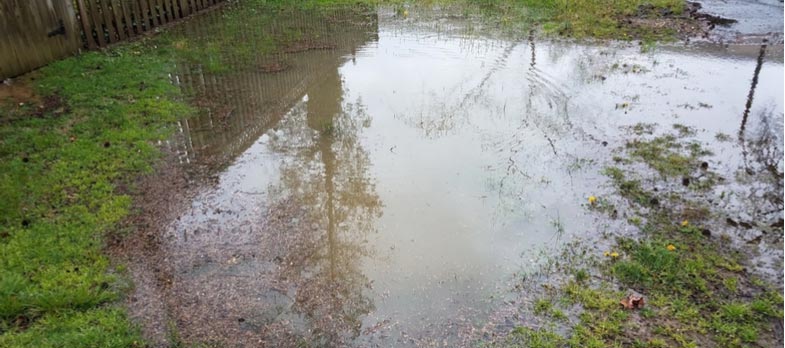Florida is covered in rivers, lakes and other waterways, making it especially important to reduce stormwater runoff. Otherwise, stormwater runoff pushes pollutants, fertilizers, and pesticides right into our local waters.
Stormwater flows across landscapes, city streets, and highways, picking up all sorts of pollutants before ending up in our local waters. You can only begin to imagine the toxic chemicals and other harmful materials that end up in our lakes, rivers and oceans as a result. Which brings us to our first important point…
Why is Stormwater Runoff Such a Big Deal?
Whatever goes down your drain can find its way into our local water systems.
Say for instance your car leaks oil onto the driveway, when it rains this oil is going to wash off surfaces and pour down the drain system, polluting local waters.
You might be surprised to learn that almost everyone contributes to the problem on a daily basis. In some parts of the country, stormwater runoff accounts for as much as 30% of the city’s total pollution.
If stormwater is not properly managed it’ll lead to these serious issues:
-Pollution of local waters, harming fish and other wildlife
-When stormwater is unable to soak into the ground, it only has one place to go. This leads to overflowing of streams and wetlands and destruction of habitats.
-Ultimately, the issue leads to water shortages because not enough fresh water is left to sustain life.
You can help reduce the amount of storm water runoff your landscaping produces by adhering the following tips.
#1. Hire a Landscape Design Company to Create a Good Drainage Plan
As a part of our detailed landscape design plans, we include proper drainage systems to prevent stromwater runoff and reduce the risk of flooding as much as possible.
#2. Green Infrastructure, Trees Can Reduce Stormwater Runoff
According to The Center for Urban Forest Research, Pacific Northwest Research Station, and USDA Forest Service, the use of trees to reduce stormwater runoff is incredibly effective and beneficial.
Planting lots of trees and soil-dwelling foliage helps offset the issue because soils absorb much of the rainwater and act as a buffer to stop water from flowing elsewhere. The benefits of using green infrastructure are becoming better acknowledged, which is a win-win because it helps preserve forests and natural land while reducing stormwater runoff.
Trees also trap water in their canopies and then slowly release water over time, allowing it to absorb into the ground instead of flowing into a nearby river or stream.
#3. Direct Downspouts & Gutters in the Right Direction
The design of your downspouts and gutters should push water out onto your plant beds or lawn. You may want to consider installing rain barrels or some type of containment area, that way you can use water as needed for gardening and so forth.
#4. Pave Driveways, Patios, Etc.
Use bricks, gravel, mulch or some type of porous surface to line walkways, driveways, patios and so forth.
#5. Keep Areas Near Storm Drains Clean & Free of Debris
Take the time to sweep trash, grass clippings, soil, fertilizer and debris away from street gutters and storm drains. This will help prevent debris from washing down storm drains and polluting local water systems.
#6. Clean Oil Spills on Your Driveway ASAP
If there’s an oil spill on your driveway, clean it up as soon as possible so that it doesn’t get washed into drain systems the next time it rains. As we have seen from major oil spills in the ocean, oil is devastating to marine life in large and small quantities. Furthermore, maintain your vehicle to prevent the risk of oil spill in the first place.
#7. Cut Back on Fertilizers
Only use fertilizers sparingly and as needed. Do not use fertilizers right before a rainstorm, as most of them are just going to end up down the drain harming local eco systems.
#8. Pick Up After Your Pets
Clean up and properly dispose of your pet’s feces in the backyard, especially before a storm.
#9. Have Your Septic Tank Regularly Pumped
If you have a septic tank, make sure to follow the set guidelines and have your septic tank cleaned on a regular basis. Otherwise, backups will occur and your yard will end up covered in smelly feces from many years past. Not only can this destroy your landscaping, and totally run your day, it’s expensive to fix and leads to pollution in waterways.

